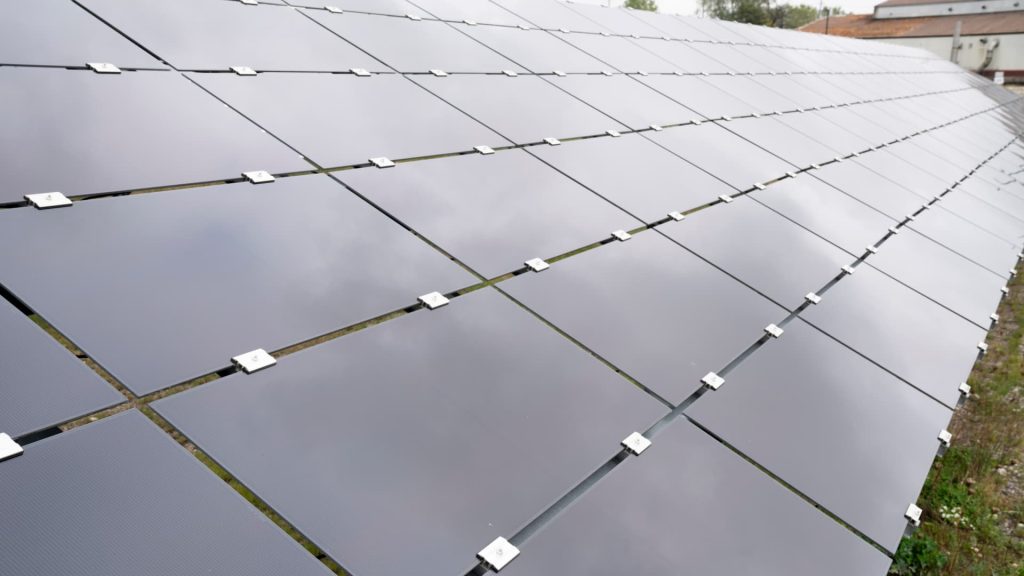President Donald Trump’s attacks on renewable energy have prevented investors from seeing the strong underlying demand for solar power and the stocks that stand to benefit, UBS analysts told clients in a note on Wednesday. Solar equipment manufacturers First Solar and Nextracker , in particular, will benefit from sustained electricity demand from artificial intelligence data centers, the UBS analysts said. The tech sector wants clean energy to power AI, and solar is quicker and cheaper to build than other electricity sources, they said. “We view solar hardware equipment suppliers as key ‘picks & shovels’ plays on the ongoing AI ‘gold rush,'” analyst Jon Windham and his team told the bank’s clients. Solar market sentiment is improving after renewable stocks declined from 2021 through this spring as interest rates, supply chain issues and Trump’s return to the White House weighed on the sector, the UBS analysts said. First Solar has gained 14% this year while Nextracker is up more than 80% despite Trump’s persistent attacks on renewable energy . Worst-case scenario avoided Investors fretted for months over what the second Trump administration would do to the renewable energy tax credits passed under President Joe Biden. Uncertainty has given way to clarity with the passage of Trump’s One Big Beautiful Bill Act (OBBB) in July, the analysts said. “U.S. policy is largely now in place and we expect investor interest to increase,” Windham said. “Broadly, sentiment for the sector has been improving since May … as worst-case scenarios for policy were rapidly taken off the table.” Republicans kept in place the manufacturing tax credit for solar equipment that Democrats passed under Biden. This puts First Solar and Nextracker at an advantage due to their domestic manufacturing footprints, the UBS analysts said. “As the incumbent large market share domestic producers, they benefit significantly from tax credits funding potential industry consolidation and further product innovation,” Windham said. The OBBB allows solar projects to qualify for the investment and production credits through 2030 if they begin construction by July 2026. And the Foreign Entity of Concern (FEOC) provisions are workable, according to UBS. FEOC provisions bar U.S. clean energy tax credits for companies related to China, Russia, North Korea and Iran. “In our view, concerns over potential negative policy outcomes from the Trump Administration obstructed investors’ recognition of strong underlying technology-driven demand for solar,” Windham said. “As long as AI data center demand grows, regardless of which specific application or company wins, solar is likely to benefit,” he said.

